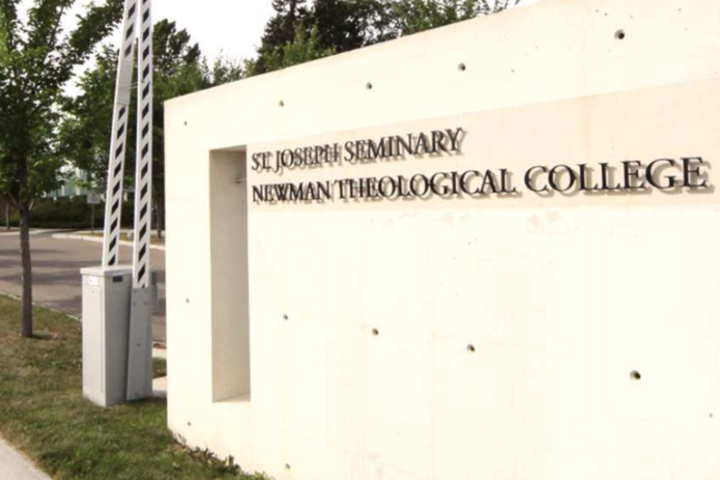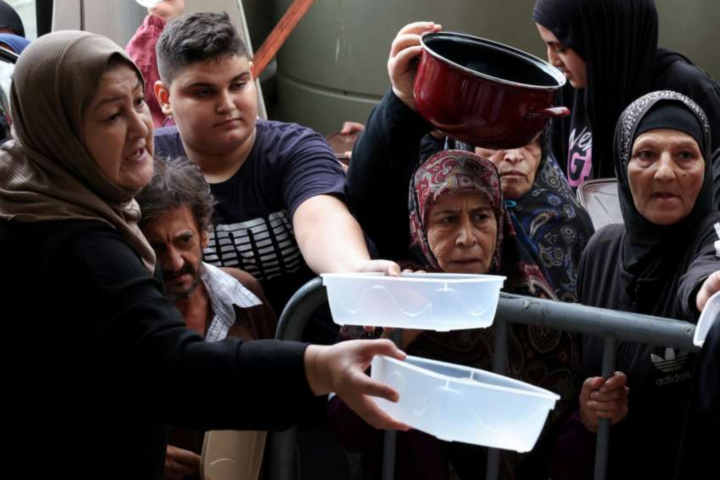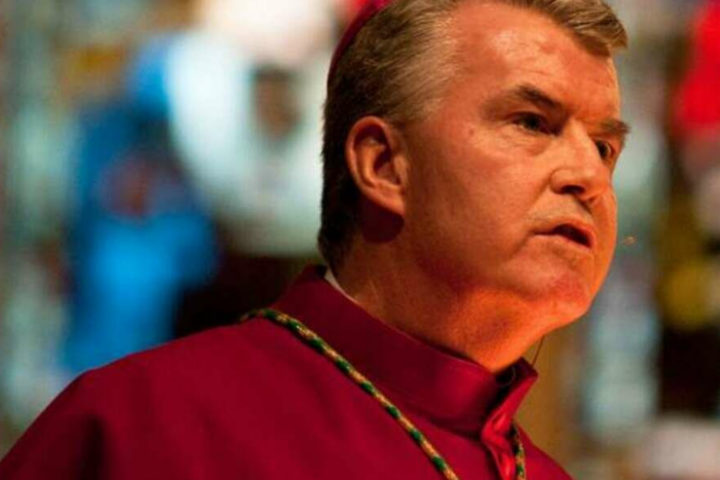Father Deacon Andrew Bennett is on an ongoing quest to reveal how Indigenous culture and Christianity coexist harmoniously and authentically.
On Feb. 21, the faith communities program director for Cardus, a non-partisan think tank, moderated a panel discussion with three Indigenous Christians — Fr. Cristino Bouvette, Marsha Hanson and Caij Meloche — at Calgary’s St. Mary’s University. He sought to ascertain if his interviewees felt free to hold their beliefs and engage in the faith practices of their choice. He also wanted to know how they contextualized their faith within their culture.
Bouvette, an Albertan of Métis and Cree-Ojibwe heritage, is pastor of Sacred Heart Parish in Strathmore who was the national liturgical director of Pope Francis’ 2022 penitential pilgrimage to Canada. Hanson is a respected Cree elder and former facilitator of the Ee-Des-Spoom-Ooh-Soop (“the environment that gives the opportunity to guide our lives forward in a positive direction,” when translated from Blackfoot) healing program at Closer to Home Community Services in Airdrie. Meloche, a member of the Otipemisiwak Métis Government, is a teacher and chaplain at St. Gabriel the Archangel School in Chestermere.
When asked by Bennett how she integrates her Christianity with her Indigenous beliefs, Hanson revealed she did not know about her Indigenous heritage until she was in her mid-50s. She was one of the 20,000 Indigenous children taken away from their biological families by child welfare authorities and fostered or adopted out to white families during the Sixties Scoop. Hanson said her adopted mother and father were loving.
After they passed away, she felt called to look for her biological relatives. This search led to the discovery of three half-sisters. She was only seeking the answer to a particular question.
“‘I don’t care if they don’t want to know me,” recalled Hanson. “I just wanted to know if I am Indigenous because that is where I feel I am at home.
“I am a member of the C3 Church West and am a leader of intercessory prayer, so I am very strong in my faith. I am also strong in my traditional Indigenous life because it is very spiritual and very much the same when you look back at the Scriptures and the ceremonies. My faith has only gotten stronger as I have walked this walk this past few years of knowing my inherited identity.”
Hanson drew enthusiastic applause and vocal reactions from the more than 100 in attendance with one particular observation.
“One of the things I really struggle with today is how we talk about (needing) to have pronouns after our names, all titles and different things, but why don’t they let us put, ‘I am a child of God?’ That is exactly who I am.”
Bennett said there is a “particular narrative in the mainstream media that says if you are Indigenous and a Christian, that is inauthentic.” Pushing back on this, Bennett declared, “Christianity is not the property of any one culture,” and Indigenous people freely accept this faith.
Bouvette, who Bennett previously profiled for the Indigenous Voices of Faith 12-interview project he did for Cardus in the autumn of 2022, told Bennett at the time that his grandmother, called “kokum,” told her descendants that Christianity was not imposed on them by Canadian society. It was a choice. At St. Mary’s, Bouvette fondly recalled how his grandmother lovingly shared her faith with him.
“I read the Scriptures with her, and she was probably the one who taught me how to preach,” said Bouvette. “She would read Scripture and then break open that word with me in a way that flowed from her so naturally. I never saw this need to be switching back and forth between, ‘now I’m an Indigenous person, and now I’m a Christian.’ They were one and the same for her.”
Concurring with Hanson, Bouvette said integrating the Indigenous way of knowing with Biblical teaching was natural since the Gospels were compatible with their worldview and spiritual practices.
In Meloche’s case, she credited her experience as a student at St. Mary’s from 2020 to 2022 for helping her discover how to combine Christian faith with Indigenous heritage authentically.
“I was able to work with the Indigenous way of knowing but also have a strong Catholic influence,” said Meloche. “I did my RCIA program at St. Mary’s while also getting involved in a number of Indigenous initiatives. During my practicum as a Grade 1 teacher, I’m reading to and teaching the students trickster stories and connections with the land, and I also teach religion in a Catholic school. We are reading the Bible, and I see my students make those connections. They’re like, ‘oh, when we are reading this creation story, it sounds very similar to what we read in the Bible.’ Seeing the students making those connections themselves without me saying anything is everything coming full circle for me.”
Bouvette agreed with Meloche that Indigenous Christians can make an impact as teachers. He said they can also play a vital role in the New Evangelization.
“We have the opportunity at a moment when I think we are being particularly listened to when I can sort of wave my Indigenous heritage, and all of a sudden everyone feels like, ‘oh, I have to listen.’ Do I take the opportunity then to share passionately and with conviction? I can be an Indigenous person excited to share the Gospel message that has changed my life.”




